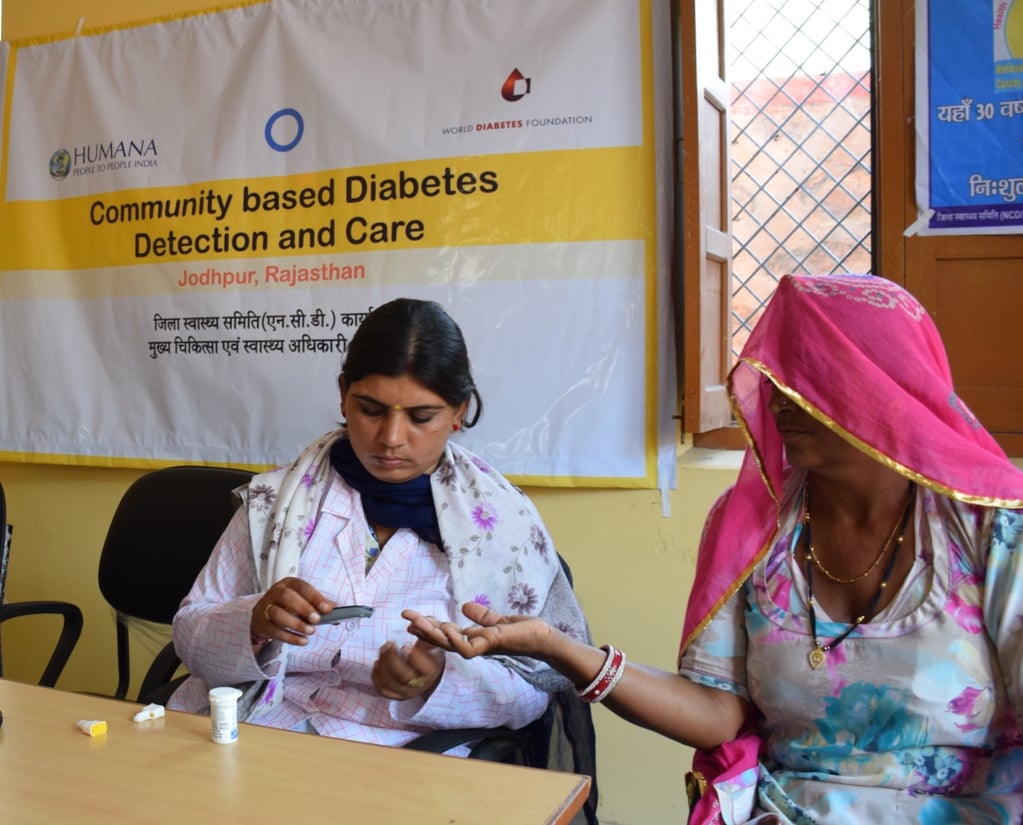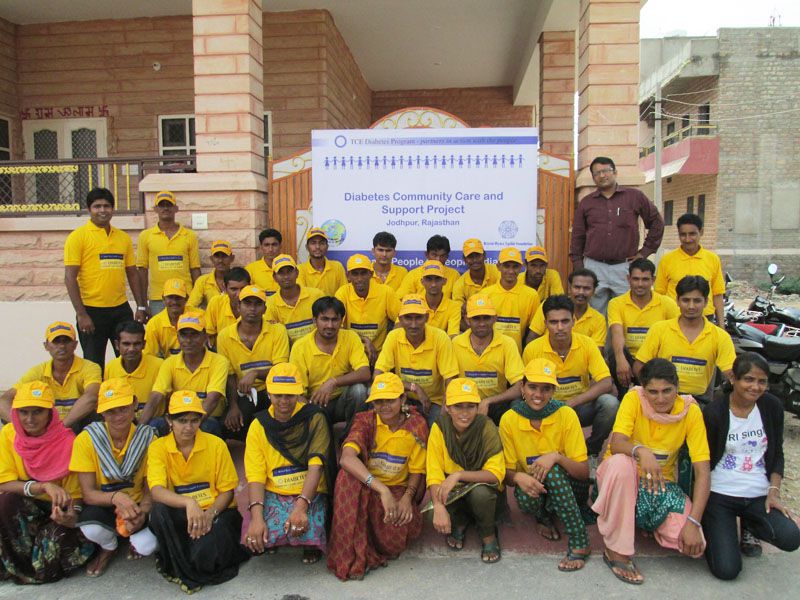World Diabetes Day: Making Inroads in India

World Diabetes Day takes place on November 14. It's a chance to spread awareness of diabetes, its complications, and its treatments to those around the globe.
India is often called the world's "diabetes capital" given its estimated 69 million diabetics and the alarming growth of this voracious disease within its borders. While the country has made great economic and development strides—being officially classified as a newly industrialized country by the International Monetary Fund in 2015—India still lacks basic public health services for much of its population.
Humana People to People India (HPPI), Planet Aid's fellow member in the Humana People to People Federation, has been on the frontlines in the fight to control diabetes in India. Its project "Diabetes Community Care and Support" (backed by the Bristol-Myers Squibb Foundation) aimed to reduce diabetes related morbidity and mortality and to prevent the onset of diabetes among the pre-diabetics through timely intervention and home-based diabetes care.
Developing an Effective Approach
 Dr. Sugata Mukhopadhyay was part of HPPI's technical team for the project. As a physician with expertise in public health, Dr. Mukhopadhyay understood that diabetes in India would be a hard illness to tackle in a public health sense—most of the cases are type 2, which requires a change in habits, not just medication. "We needed to develop a good system that helped the patients follow healthy lifestyles," Dr. Mukhopadhyay said.
Dr. Sugata Mukhopadhyay was part of HPPI's technical team for the project. As a physician with expertise in public health, Dr. Mukhopadhyay understood that diabetes in India would be a hard illness to tackle in a public health sense—most of the cases are type 2, which requires a change in habits, not just medication. "We needed to develop a good system that helped the patients follow healthy lifestyles," Dr. Mukhopadhyay said.
In 2012, as HPPI's diabetes intervention project was starting, the government of India was beginning their national program for non communicable diseases. Working with government accredited social health activists and community nurses, HPPI's project sent field staff (called "field officers") door-to-door to detect cases of diabetes in the Mandore block of Jodhpur District, Rajasthan.
Tremendous Response
The three-year project reached more than 200,000 individuals (nearly the entire population of the block) and tested approximately 120,000 individuals. More than 4,200 diabetes cases were detected from amongst those tested, who were included in a robust home-based diabetic care program.
"The project showed tremendous response," Dr. Mukhopadhyay said. "This model was useful in bringing the necessary healthy habits to the people." Part of what made this project a success is that it tracked impact by gathering detailed and reliable data throughout.
Once the project was completed, the India Institute of Health Management Research used the data to conduct a comprehensive evaluation that showed a substantial increase in knowledge of diabetes care in the project community.
Building on the early success of this project, HPPI is currently expanding the project's reach to five more blocks of Jodhpur District, Rajasthan with the support of the World Diabetes Foundation.

